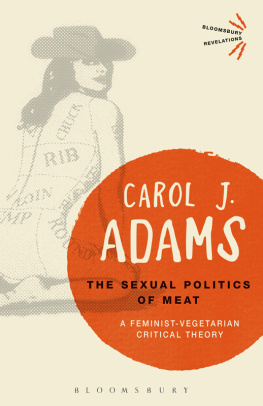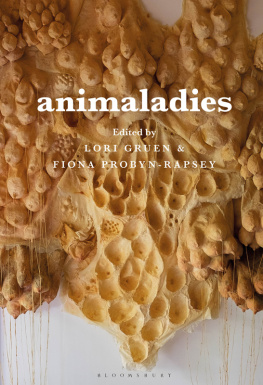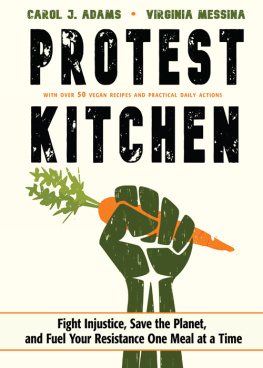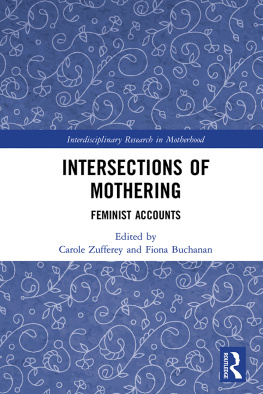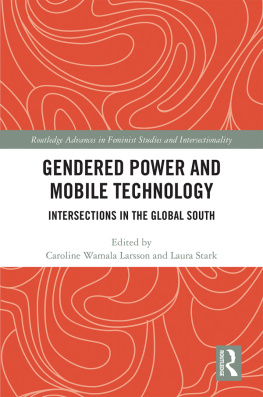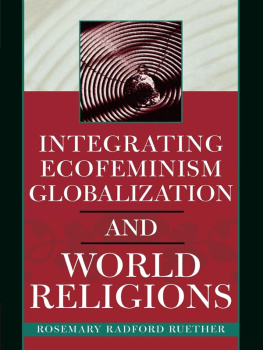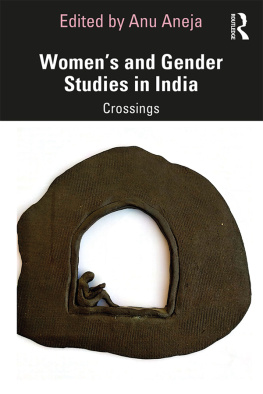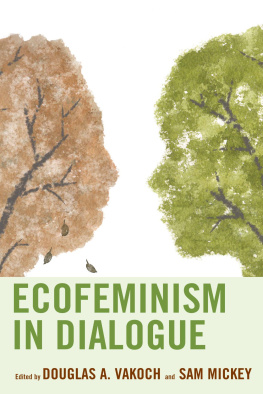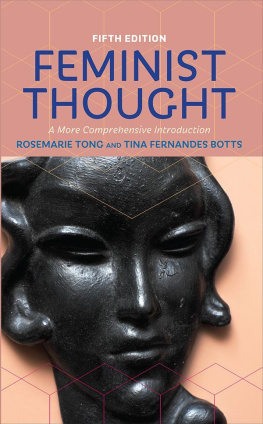
ecofeminism
ecofeminism
feminist intersections with other animals and the earth
Edited by Carol J. Adams and Lori Gruen

Wrenching an ethical problem out of its embedded context severs the problem from its roots In a sense, we are given truncated stories and then asked what we think the ending should be. However, if we do not understand the worldview that produced the dilemma that we are asked to consider, we have no way of evaluating the situation except on its own terms.
Re-specting nature literally involves looking again. We cannot attend to the quality of relations that we engage in unless we know the details that surround our actions and relations. If ecofeminists are sincere in their desire to live in a world of peace and nonviolence for all living beings, we must help each other through the pains-taking process of piecing together the fragmented worldview that we have inherited. But the pieces cannot simply be patched together. What is needed is a reweaving of all the old stories and narratives into a multifaceted tapestry.
Marti Kheel 1993
Contents
A fter the death of our dear friend Marti Kheel on November 19, 2011, a community of mourners came together online and at memorials on both coasts in an embrace of compassion and care that lifted us up personally and enlivened us politically to share the insights of ecofeminism. We are deeply grateful to this extended community and to the Kheel family for facilitating this renewal of ecofeminist theory and practice in the wake of Martis death.
To build on the conversations that were happening, we organized a conference Finding a Niche for All Animals at Wesleyan University in 2012. We are grateful to all of the participants at the conference for sharing their recollections, their new ideas, and their excitement about making the world better for animals and the earth. Some of the papers presented at the conference are reworked in the chapters in this volume and we thank those contributors as well as those scholars and activists whose papers were not ultimately included. We are grateful to the sponsors of the conference: Wesleyan Animal Studies, the College of the Environment, the Ethics in Society Project, the Feminist, Gender, and Sexuality Studies Program, the Center for the Study of Public Life, and the Philosophy Department at Wesleyan and the Animals and Society Institute, Feminists for Animal Rights, Arnold S. and Ellen Kheel Jacobs, AJ Jacobs, Jane Kheel Stanley, and other members of the Kheel family. Lynn Higgs and Hilda Vargas provided outstanding logistical support for which we are so grateful. The conference would not have happened without the unwavering support of Jane Stanley and Batya Bauman, who also created a new website for Feminists for Animal Rights: http://www.farinc.org/ after the conference.
We thank three anonymous reviewers of this manuscript for their thoughtful suggestions. We are particularly grateful to Kevin Ohe, Haaris Naqvi, and Laura Murray at Bloomsbury Press for their enthusiasm and encouragement in publishing this book.
The night Marti died, Carol and Lori began a conversation about mourning and remembrance. That night Lori suggested the idea of holding a conference. Carol wishes to acknowledge the roots of this book in that sad night, and how the work of collective mourning allowed for the emergence of many of these important essays; that this book exists is due in great part to Loris spirit, insights, and skill, as well as her deep understanding of ecofeminist philosophy and activism.
LG and CJA, November 26, 2013
Ralph R. Acampora is Associate Professor of Philosophy at Hofstra University. He is the author of (University of Pittsburgh Press, 2006), edited Metamorphoses of the Zoo: Animal Encounter After Noah (Lexington Books, 2010) and co-edited A Nietzschean Bestiary (Rowman & Littlefield, 2003). Recent interests of his include the hermeneutics of spectatorship at zoos, moral issues pertaining to the built, including biotechnical environment, and the ontological status of nature. A vegetarian who tries to be vegan in an overwhelmingly omnivorous and carno-crazed culture, he does not eat friends, lovers, or close kin (of any species).
Carol J. Adams is the author of
Deane Curtin is the Hanson-Peterson Professor of the Liberal Arts and Professor of Philosophy at Gustavus Adolphus College. While on sabbatical writing his chapter in India he coordinated two projects at the request of His Holiness, the Dalai Lama. At the Library of Tibetan Works and Archives in Dharamsala, he coordinated a project to translate the major texts of Western philosophy into Tibetan for the first time. He also designed and taught a core ethics course based on the Dalai Lamas book Beyond Religion at the Dalai Lama Institute for Higher Education in Bangalore.
Josephine Donovan , Professor Emerita of English at the University of Maine, is the author or editor of 13 books and numerous articles. With (1995).
Karen S. Emmerman earned her doctorate in philosophy in 2012 from the University of Washington, where she wrote a dissertation in ecofeminist animal ethics, Beyond the basic/non-basic interests distinction: A feminist approach to inter-species moral conflict and moral repair. Karen is an adjunct lecturer in the UW Philosophy department and Comparative History of Ideas program, co-organizer of the University of Washington Critical Animal Studies Working Group, and board member of the UW Center for Philosophy for Children.
Greta Gaard s research and activism address the local and global intersections of gender, race, sexuality, species, and ecology. Her many published essays bring a feminist perspective to explore intersections of social, species, and environmental justice. Her book publications include Ecological Politics: Ecofeminists & the Greens (1998); (1993); Ecofeminist Literary Criticism (1998); International Perspectives in Feminist Ecocriticism (2013), and a book of creative nonfiction, The Nature of Home (2007).
Lori Gruen is Professor of Philosophy, Feminist, Gender, and Sexuality Studies, and Environmental Studies at Wesleyan University, where she also coordinates Wesleyan Animal Studies. She has published extensively on topics in ecofeminist ethics, animal ethics, and environmental philosophy. She is the author of two books on animal ethics, most recently Ethics and Animals: An Introduction (Cambridge, 2011); the editor of
pattrice jones is a cofounder of VINE Sanctuary, an LGBTQ-run farmed animal sanctuary that works within an extended, ecofeminist understanding of the intersection of oppressions. She is the author of Aftershock: Confronting Trauma in a Violent World (Lantern, 2007) and has published essays in Confronting Animal Exploitation (McFarland, 2013); Sister Species (University of Illinois Press, 2011); Sistah Vegan (Lantern, 2010); Contemporary Anarchist Studies (Routledge, 2009); Igniting a Revolution (AK Press, 2006); and Terrorists or Freedom Fighters (Lantern, 2004).
Claire Jean Kim
Next page

